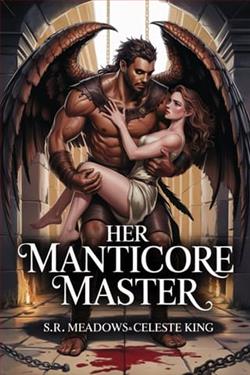Page 35 of The Someday Daughter
The paper is a nightmare—When Camilla writes that “the permission to live as we want is our own to give,” what does that mean to you?AndWhat one message would you want your someday daughter to know? How can you apply that message in your own life?And, worst of all, at the very bottom of the page:Open forum for Audrey questions—what has it meant to her to experience this kind of radical self-love at home, how has this emotional openness shaped her relationship with Camilla, etc.
I swallow, turn to watch Lake Michigan hurtle past.Radical.
The house in Winnetka is gated, its plot so wooded you can’t see even a hint of the house from the road. The driver checks in at the radio box, announces my mother’s presence, and we’re buzzed in. I shouldn’t be surprised anymore by the company Camilla keeps, but still—my mouth falls open as we roll up the driveway. A colossal stone mansion, crawling with carefully groomed ivy. Flower boxes in every window, frothy with hugewhite blooms. And a three-story arched window at the front of the house, giving us a clear view through its airy living room to the churning blue of Lake Michigan beyond it.
“Stunning,” my mother says. “Preeti’s always had such good taste.”
“Who is this person?” I ask as we step onto the smooth driveway.
“One of Saint’s early investors,” Camilla says. “She comes from tech and had the good fortune of a software buyout in the early aughts; now she runs a capital firm from the city. Two young daughters,” she adds, looking at me as she reaches to ring the doorbell. “And a great interest in meeting you.”
I feel myself bristle and consciously lower my shoulders, trying not to stare through the window in the door as Preeti appears and heads toward us.
“Camilla,” she says, hugging her the moment she opens the door. Her accent is lyrical, turning my mother’s name into music. “And you must be Audrey.”
“Nice to meet you,” I say, taking the hand she offers. Preeti looks about forty, a sage-colored linen dress hanging from her slim shoulders.
“Please, please, come in.” She waves us onto the wide wooden floorboards of her entryway, then into an airy living room where six women sit on couches with champagne glasses in hand. It is... one o’clock in the afternoon. Everyone gasps when Camilla walks in, a whole chorus of breathy preening. I don’t know where to look as my mother meets each woman in turn, so I step over to the window and look out at the lake instead: it’s sunlit and big as the ocean, endless from here.
“And my daughter,” Camilla says, my cue to turn around. “Audrey.”
Their collectivehelloooooturns into a hum, a harmonious croon.
“Sit next to me, sweetie,” one woman says, patting the couch. I manage a smile and tuck myself in beside her—the whole room smells like perfume, like huffing an expensive candle.
“How’s itbeen?” another woman asks, directly across from me. “This summer, so far?”
I glance at Camilla, know that we’re both thinking about the last time I answered this question.It’s been absolutely horrible.I open my mouth, but my mother beats me to it.
“Tell them about your work with Dr. Stone,” she says. Sadie prepared me for this, and even still—I’m so surprised that the words have to sink in slowly, one by one by one. “Just this morning Audrey was visiting a physical therapy practice downtown, but that’s only a small part of her independent study.” She meets my eyes. “Go ahead, honey.”
I make some kind of stuttering, unhinged noise—like a car that needs to grumble along a bit before the engine catches. And then I’m telling them about Sadie, about her research, about everyone we’ve seen and will see.
I hadn’t been expecting a whole metric ton from Dr. Bautista’s practice, to be honest—physical therapists are technically doctors, but a DPT degree only takes three years. Not exactly the same as the path ahead of me after undergrad: four years of med school plus three years of residency (at minimum, minimum, minimum). Plus, no MCAT. But Sadie spoke highly of him, which is no small thing. And wediddrive seventeen hours to be there.
I certainly wasn’t expecting Dr. Bautista’s state-of-the-art, sun-filled facility overlooking the river in downtown Chicago. The name he’d made for himself as the leading authority in postparalysis rehabilitation. The leather binder he let me flip through on his desk, thank-you notes from his greatest success stories captured there behind plastic.
And, most of all, I wasn’t expecting the way he’d smiled at Sadie when he walked me out after the tour—when she was waiting for us in the lobby, copy ofLettersopen in her lap. The way he’d said, “Still reading that book, huh?” Like he’d seen her do it before, all those years ago in Michigan. Or how she’d clicked her pen and snapped the book shut—like she’d been taking notes inside it that she didn’t want us to see.
I had my own habits when it came to that book, my own secret reads. But I couldn’t, for the life of me, figure out why Sadie would. I wanted to know what she was writing there, but I couldn’t bring myself to ask.
“It’s been incredible,” I say now, pushing down the memory to focus on what’s in front of me. “To see all these different practice areas, and to do it with a scientist I respect so much.” I glance at my mother and find, to my surprise, that she’s watching me as intently as everyone else. Like she actually wants to hear about this. “I’m in the application process for a shadowing position at the Johns Hopkins Hospital ICU this fall—they only take one premed student, but what I’m seeing this summer has been so valuable. I can’t, um.” I hesitate, realize I’ve been talking everyone’s ears off. The first time, since joining this tour, that I haven’t had to dredge words up against their will. “I can’t wait to be there.”
“Wow,” the woman next to me says. “What an impressive young woman you are.”
I flush, glancing at Camilla. And she doesn’t do what she normally does—swoop in, take credit, turn the conversation back to herself. She just smiles at me. She just lets me fill up this space all on my own.
25
Thursday is the Fourth of July, and Cleo’s eye makeup knows it. She has blue stars dotting the lids of both eyes, red lines swooping along her lashes and flaring up toward her eyebrows.
“America has some considerable shit to answer for,” she says, closing a hand around my wrist and dragging me toward a funnel cake stand at the very tip of Navy Pier. “But lord knows I can’t pass up a firework.”
“You do this a lot,” I say, breathing in the sugar-sweet night air.
“Do what?”
I hold up my arm, still gripped in her small but mighty hand. “Yank people around.”















